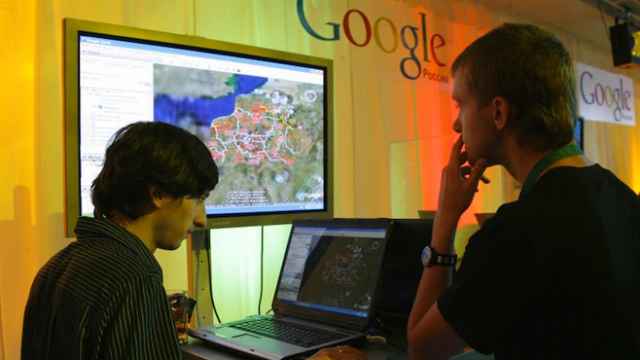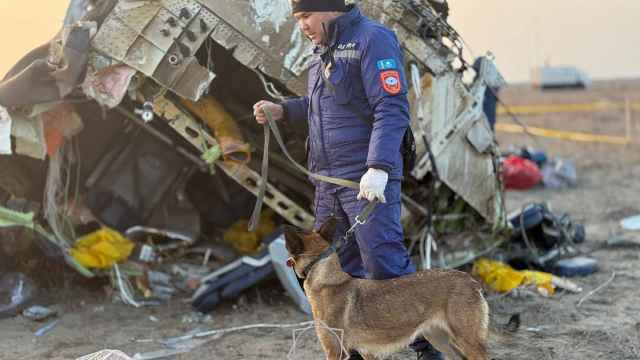Forget wars and money: The Sochi Olympics topped the list of this year's top-trending searches in Russia published by Google.
Entertainment featured prominently, too: The runner-up was Zhanna Friske, a best-selling Russian pop star currently battling cancer who made headlines over the controversial fund-raising effort to help her.
Slots three, six and seven went to Russian television series, with No. 3 being "Fizruk" ("P.E. Teacher"), a comedic tale of a Russian mafioso who takes up a job as a school gym teacher.
"Eurovision 2014" ranked in fourth place: The contest is a perennial Russian favorite, and the controversy generated by the winner, Austrian drag queen Conchita Wurst, certainly helped as well.
Crimea, the Ukrainian peninsula annexed by Russia in March, much to the West's displeasure, was only the fifth most popular search in 2014.
"Ukraine news" ranked in the ninth slot, showing that Russians' interest in the pro-Russian insurgency in eastern Ukraine was perhaps not as great as commonly thought.
Another Western agent, the iPhone 6, made it into the top 10 but came in last place.
On related searches, Friske topped the "trending people" list. "[How to] paint eggs" scored as the lifehack of the year, reflecting Russia's ubiquitous Easter custom (the eggs are real, and they are colored and eaten — not hidden).
The ruble, which plunged into a dramatic free fall this week, was late to the party and so not included on the Russian list.
Of the global top three — (the late) Robin Williams, World Cup and Ebola — none had enough interest in Russia for the top 10.
The rest of the world cared more about Crimea and Ukraine than their Russian neighbors: The two combined scored as the fourth most popular query for global news.
The interest in Ukraine was outmatched only by Ebola and ISIS, as well as Malaysia Airlines, which lost two planes this year, one vanishing mysteriously and another shot down over a rebel-held area in Ukraine.
A Message from The Moscow Times:
Dear readers,
We are facing unprecedented challenges. Russia's Prosecutor General's Office has designated The Moscow Times as an "undesirable" organization, criminalizing our work and putting our staff at risk of prosecution. This follows our earlier unjust labeling as a "foreign agent."
These actions are direct attempts to silence independent journalism in Russia. The authorities claim our work "discredits the decisions of the Russian leadership." We see things differently: we strive to provide accurate, unbiased reporting on Russia.
We, the journalists of The Moscow Times, refuse to be silenced. But to continue our work, we need your help.
Your support, no matter how small, makes a world of difference. If you can, please support us monthly starting from just $2. It's quick to set up, and every contribution makes a significant impact.
By supporting The Moscow Times, you're defending open, independent journalism in the face of repression. Thank you for standing with us.
Remind me later.






